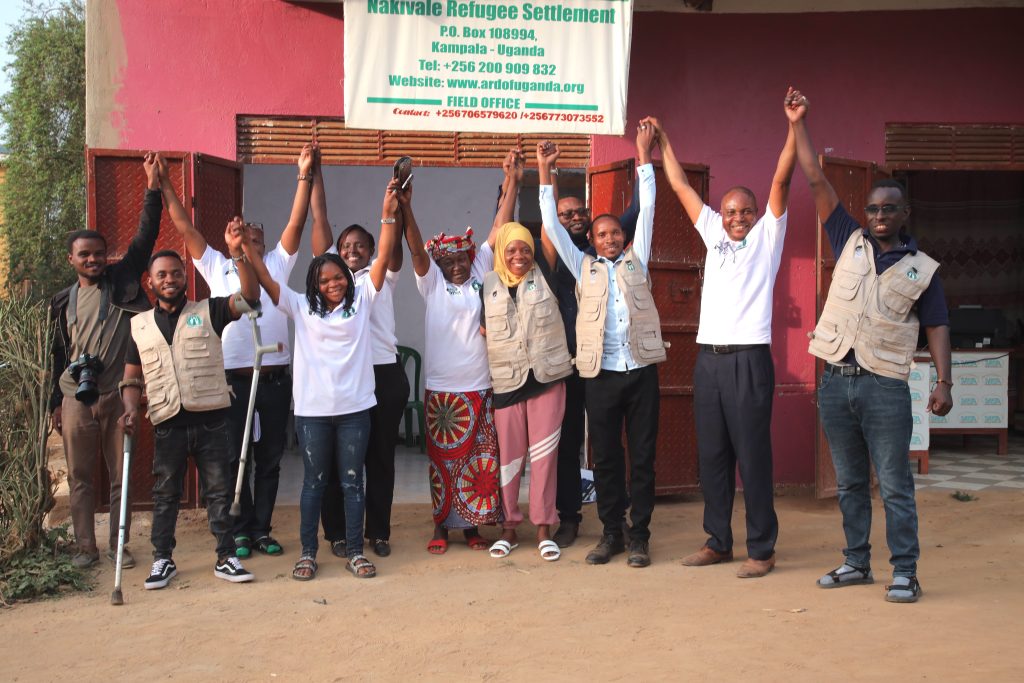Thank you
Dear Friends,
On this Human Rights Day, we want to say an enormous thank you. Thank you for making sure that disability rights are included in human rights, and for joining us in this fight.

Association of Refugees with Disability advocate for the rights of refugees with disabilities in Uganda. Photo: Rucha Chitnis
To the activists—thank you for your leadership, your courage, your wisdom, and your tenacity.
To our grantmaking committee advisors and Board members—thank you for your deep participation and care that moved over $5,000,000 this year.
To our partners in disability and feminist movements—thank you for prioritizing intersectional inclusion, deepening collaboration, and pooling knowledge and resources to open more space for activist participation.
To the donors investing in disability rights—thank you for moving money to invest in disabled leadership within and across movements, and encouraging your peers to step up to provide more and better resources for this work, too.
To the people learning from and amplifying our work—thank you for growing your own understanding and bringing visibility to the historically undervalued and unseen labor of disabled leaders.
The global disability rights movement is stronger because you’re a part of it. Today, we are celebrating you.
With all our gratitude,
Myroslava Tataryn
Chief of Movements Division, Disability Rights Fund